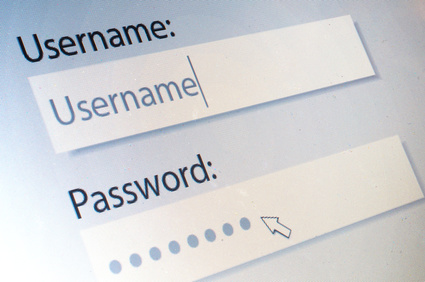Category: Virgin Media Group Action
Compensation from being complacent about data protection

It can be argued that the Virgin Media data leak that was discovered in early 2020 is an example of how being complacent about data protection can cause significant problems.
In this event, it was discovered by a third-party security researcher that a database containing the details of some 900,000 people was accessible online. Most of the people whose information was on the database were customers, but there were also some others in there as well. It was found that the database had been accessible for a period of 10 months between April 2019 and February 2020. And, during that time, at least one unknown third party is understood to have accessed the compromised database.
What this meant is that a staggering 900,000 people lost control over their personal information. As a result of this event, thousands of people have signed up to join our action for compensation, and you may still be eligible to start your case here now.
Data and passwords found on the dark web

One of the reasons as to why we are so concerned when we see privacy breaches like the Virgin Media one that we represent thousands of people for is because of data like passwords found on the dark web.
When information is hacked, it can often end up on the dark web for sale for criminals to then exploit. Whilst the Virgin Media data leak was not understood to have included passwords, it did include enough data for people to be exploited. And that can be enough for people to fall victim to crime and suffer as a result.
You can join the Virgin Media data breach group compensation action here now.
When data protection practices fail – real people suffer

The need for any organisation to have really good data protection practices in place is absolutely essential, and Virgin Media is no different in this regard at all.
However, back in early 2020, it was revealed that they had failed to secure a database that was understood to be in use for marketing purposes. This database contained the details of some 900,000 people, most of whom were customers. It was accessed at least once during the period it was left unsecure from April 2019 by an unknown person, and the issue was only discovered by a third-party security researcher.
In response to the data leak, leading consumer action and data breach claims experts Your Lawyers launched a group legal case for justice. If you are one of the people told that your private information was exposed in this leak, you can start your legal claim easily here now.
Virgin Media victims affected by a data breach: claim compensation now

If you have been affected by a data breach, you could be eligible to pursue a claim for compensation now on a No Win, No Fee basis, and this includes victims of the 2020 Virgin Media data leak.
We are already representing thousands of clients for legal cases right now who are advancing their claims as a victim of this particular leak. Victims can be eligible to receive thousands of pounds in damages for those still in time to claim, and we are here to make sure that justice is served.
Second anniversary of the Virgin Media data breach revelations

This month marks the second anniversary of the news hitting the headlines that Virgin Media had suffered a major data leak, with breach notifications being sent to victims.
We were contacted right away by concerned victims. As we are open on most weekends, we were able to advise people immediately who had been receiving notifications on the Friday. Right away, our expert legal team knew that this was a major data breach that required us to launch a legal group action, and that is exactly what we did.
Now, as we mark the second anniversary of the news of the Virgin Media data breach, we have made significant progress for the thousands of clients that we act for. There is still time to claim at the time of this blog, but we urge you to start your claim for compensation as a matter of urgency.
Compensation when information is shared without consent

Victims could be eligible to claim data breach compensation when information is shared without consent, and this can include the Virgin Media data leak.
In the Virgin Media data breach, some 900,000 people – mainly customers – had their personal details exposed. A marketing database had been left unsecured and was accessible online for a period of 10 months between April 2019 and February 2020. The exposed information was discovered by a third-party security researcher, and it was confirmed that at least one unknown third-party had also accessed the data during the breach period.
We are representing thousands of victims claiming compensation in the Virgin Media data breach group action. If you have yet to join the case, you can do so here now.
Your Lawyers Virgin Media data leak compensation action

The Your Lawyers Virgin Media data leak compensation action is still open for anyone affected by the privacy exposure revealed in 2020 to sign up and join here now.
Eligible clients are still in time to join the action now and benefit from our No Win, No Fee legal representation. We are now almost two years on from when the data breach first hit the headlines, and we continue to fight for justice for the thousands of victims of the breach that we represent.
We have been in the media a lot about data actions in general, as well as in relation to this case in particular. If you have yet to join the action, we recommend that you sign up as soon as you can to avoid missing out.
Claim data leak distress compensation – Virgin Media leak

You could be eligible to claim data leak distress compensation if you are one of the 900,000 people affected by the Virgin Media data breach that was revealed in 2020.
As long as you have received notification that you have been affected by the data leak, we should be able to represent you for a case on a No Win, No Fee basis. All you need to do is complete the forms here now and you can get started with your claim right away.
Data breach group action cases – Virgin Media leak

Your Lawyers specialise in data breach group action cases, and one of the major ones that we are leading a fight for justice for is for victims of the Virgin Media data leak.
If you have been affected by the Virgin Media data leak, we may be able to represent you for a legal case on a No Win, No Fee basis. You can start your claim here now.
A victim of data theft or loss of control can claim compensation

Did you know that a victim of data theft or loss of control of personal information could be eligible to claim compensation, and this can apply to those who were affected by the Virgin Media data leak discovered in 2020?
If you did not previously know, you do now. An added bonus is that victims can also be entitled to pursue their claim on an entirely No Win, No Fee basis as well. Whilst we cannot speak for other firms, this is the way that we can operate, and eligible victims of the Virgin Media incident can benefit from our No Win, No Fee legal representation.
Here is a little insight into when you could be eligible to claim as a victim of data theft or loss, and how this can tie in with the Virgin Media data breach.













